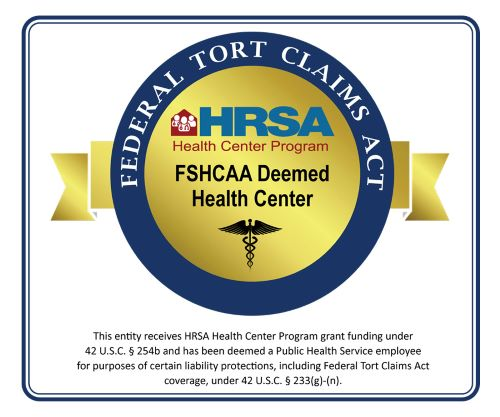To Buy Lopressor Online Visit Our Pharmacy ↓
 Lopressor and Dietary Considerations: Foods to Avoid
Lopressor and Dietary Considerations: Foods to Avoid
Understanding Lopressor: What You Need to Know
Lopressor, the brand name for metoprolol, is a beta-blocker commonly prescribed to manage high blood pressure, angina, and heart rhythm disorders. As it works by blocking certain receptors, it slows down your heart rate and reduces the force of your heartbeat, helping your heart work more efficiently. Understanding how Lopressor operates is crucial for recognizing its potential interactions with food and beverages. Patients taking Lopressor should be aware of potential dietary considerations to ensure the medication works effectively and minimize unwanted side effects.
To aid in your understanding, here's a quick overview of Lopressor's key benefits and uses:
| Benefits | Uses |
|---|---|
| Reduces heart rate | High blood pressure |
| Lowers blood pressure | Angina |
| Decreases strain on the heart | Heart rhythm disorders |
The Role of Diet in Medication Effectiveness

Dietary choices significantly influence how medications like Lopressor function. Consuming the right foods enhances the drug’s efficacy, while the wrong ones can hinder it, potentially leading to adverse effects. Lopressor works by lowering heart rate and blood pressure, and certain nutrients can support or counteract these effects. Foods high in potassium and magnesium, for instance, can complement Lopressor’s action, promoting cardiovascular health. However, excessive intake of certain substances, such as sodium, can elevate blood pressure, reducing Lopressor’s effectiveness and necessitating dietary vigilance.
Caffeine Alert: Why Coffee and Tea Matter
When taking Lopressor, paying attention to caffeine consumption is crucial. Caffeine, found in coffee and tea, can stimulate the heart and elevate blood pressure, potentially counteracting Lopressor's effects. This medication aims to manage heart rate and blood pressure, but excessive caffeine might disrupt these efforts.
Individuals on Lopressor should be cautious with their daily caffeine intake to maintain optimal health outcomes. Moderation is key, as overindulgence in caffeine-rich beverages can lead to palpitations, increased heart rate, and unwanted cardiovascular strain.
Balancing caffeine consumption ensures that Lopressor works as intended, promoting cardiovascular health without interference. By adjusting your coffee or tea habits, you align more closely with the medication's goals, effectively supporting its blood pressure-lowering capabilities. Consulting a healthcare provider can provide personalized guidance on dietary adjustments to maximize Lopressor's benefits.
Salty Truth: Sodium Intake and Blood Pressure

In the bustling world of dietary choices, salt often sneaks in as a silent contributor to high blood pressure, challenging the effectiveness of medications like Lopressor. Sodium-rich diets can cause your blood vessels to constrict, increasing resistance and making it harder for Lopressor to maintain its intended blood pressure-lowering effects. The body’s delicate balance can be disrupted, forcing your heart to work overtime, which is precisely what Lopressor aims to alleviate.
Imagine your cardiovascular system as a well-tuned orchestra, with each part playing its role. Introducing excess sodium is like having a trombone player go rogue, throwing off the entire performance. To help Lopressor do its job efficiently, consider opting for fresh, whole foods rather than processed counterparts, and be mindful of those hidden sodium traps in your pantry.
Grapefruit Enigma: Avoiding Citrus Complications
The interaction between Lopressor and grapefruit is a puzzle that continues to mystify patients and healthcare providers alike. Grapefruit and its juice can interfere with the metabolism of Lopressor, leading to potentially heightened drug levels in the bloodstream. This interaction may amplify the medication's effects, resulting in an unexpectedly lower heart rate or blood pressure.
One key element of this interaction lies in the compounds within grapefruit that inhibit cytochrome P450 enzymes. These enzymes are crucial for drug metabolism and, when inhibited, can lead to increased concentrations of medications like Lopressor. It is advised to avoid grapefruit products completely to maintain consistent therapeutic outcomes.
| Food | Impact on Lopressor |
|---|---|
| Grapefruit | Increases drug levels |
Alcohol and Lopressor: a Risky Combination
Navigating the world of medications can be tricky, especially when it comes to mixing them with alcohol. Lopressor, a commonly prescribed beta-blocker for high blood pressure and heart issues, is no exception. Alcohol can amplify the side effects of Lopressor, such as dizziness and lightheadedness, potentially putting you at risk of injury. It can also counteract the effectiveness of the medication, creating a dangerous loop where increased consumption worsens symptoms meant to be controlled. It's crucial to understand these interactions to maintain your health and safety.





